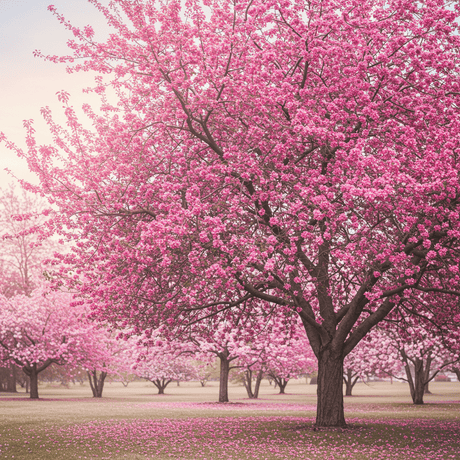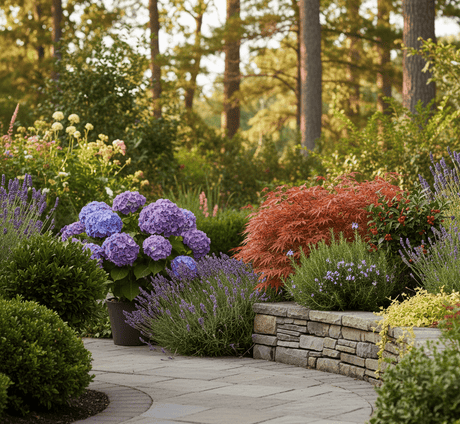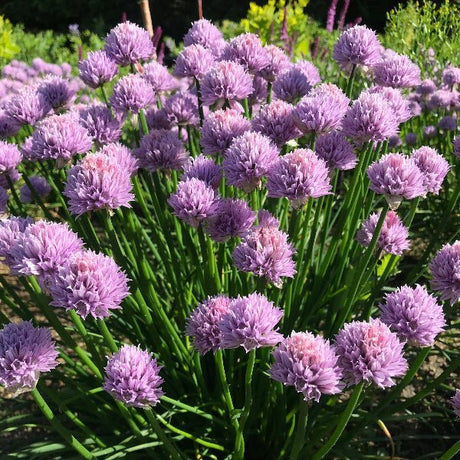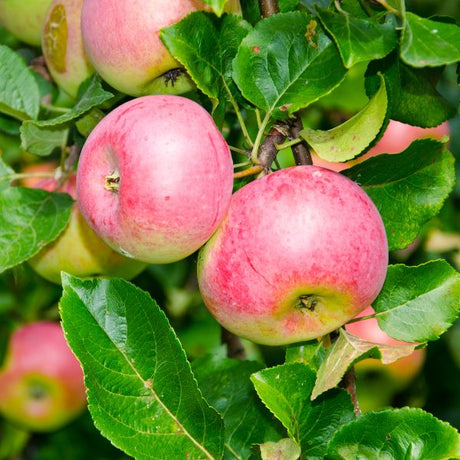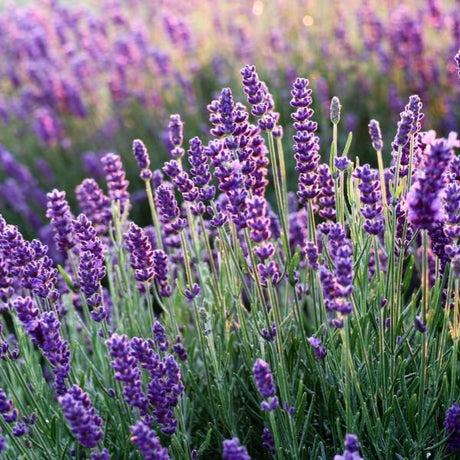Lemon Ball Sedum
Sedum mexicanum 'Lemon Ball'
- Stay Protected with Plant Sentry ™
Lemon Ball Sedum - Quart Container is backordered and will ship as soon as it is back in stock.
Plant Sentry™
Plant Sentry™

Plant Sentry™ Protected
Your order is protected by our compliance system that:
- Prevents restricted plants from shipping to your state
- Ensures plants meet your state's agricultural requirements
- Protects gardens from invasive pests and diseases
Delivery and Shipping
Delivery and Shipping
Delivery and Shipping
Fast, Safe Plant Delivery
Ships in 3-4 business days • Tracking provided • Weather protected
| Under $50 | $9.99 |
| $50 - $99.99 | $14.99 |
| $100 - $149.99 | $16.99 |
| $150+ | $24.99 |
✓ Zone-specific timing • ✓ Professional packaging • ✓ Health guarantee
Understanding Plant Options
Nature Hills offers plants in two main formats:
- Container Plants: Grown in pots with soil, sized by container volume and plant age
- Bare Root Plants: Dormant plants without soil, sized by height measurements
Container Plant Sizes
Container sizes indicate plant age and growing capacity rather than liquid volume equivalents. Our containers follow industry-standard nursery "trade gallon" specifications, which differ from standard liquid gallon measurements.
Young Plants (6 months to 18 months old)
| Container Size | Actual Volume | Metric Equivalent |
|---|---|---|
| 2" x 2" x 3" | 0.18 - 0.21 dry quarts | 0.20 - 0.23 dry liters |
| 4" Container | 0.31 - 0.87 dry quarts | 0.35 - 0.96 dry liters |
| 4.5" Container | 0.65 dry quarts | 0.72 dry liters |
| 6" Container | 1.4 dry quarts | 1.59 dry liters |
| 1 Quart | 1 dry quart | 1.1 dry liters |
| 5.5" Container | 1.89 dry quarts | 2.08 dry liters |
Established Plants (18 months to 2.5 years old)
| Container Size | Actual Volume | Metric Equivalent |
|---|---|---|
| 2 Quart | 2 dry quarts | 2.2 dry liters |
| #1 Container | 2.26 - 3.73 dry quarts | 2.49 - 4.11 dry liters |
| 5" x 5" x 12" | 3.5 - 4.3 dry quarts | 3.85 - 4.74 dry liters |
Mature Plants (2-4 years old)
| Container Size | Actual Volume | Metric Equivalent |
|---|---|---|
| #2 Container | 1.19 - 1.76 dry gallons | 5.24 - 7.75 dry liters |
| #3 Container | 2.15 - 2.76 dry gallons | 8.14 - 12.16 dry liters |
Large Plants (3-5 years old)
| Container Size | Actual Volume | Metric Equivalent |
|---|---|---|
| #5 Container | 2.92 - 4.62 dry gallons | 12.86 - 20.35 dry liters |
| #6 Container | 5.25 - 6.01 dry gallons | 23.12 - 26.42 dry liters |
| #7 Container | 5.98 - 6.53 dry gallons | 26.34 - 28.76 dry liters |
Bare Root Plants
Bare root plants are sold by height from the root system to the top of the plant. Plants may exceed minimum height requirements.
Common Sizes:
- Trees: 1 foot, 2 feet, 3 feet, 4 feet, 5 feet, 6 feet
- Shrubs & Perennials: 1 foot, 18 inches, 2 feet
Important Notes
Container Volume Specifications
- Trade Gallon Standard: Our containers follow industry-standard "trade gallon" specifications established by the American National Standards Institute (ANSI Z60.1) for nursery stock
- Volume Variations: Actual soil volume may vary due to plant root systems and growing medium settlement
- Age Indicators: Container size primarily indicates plant age and maturity rather than liquid volume equivalents
Growing Conditions
- Plant size can vary based on variety and growing conditions
- Container size helps indicate plant maturity and establishment level
- Larger containers generally mean more established root systems and faster landscape establishment
Seasonal Availability
- Bare root plants are available seasonally when dormant
- Container plants are available throughout the growing season
- Specific varieties may have limited availability in certain sizes
Questions?
For questions about specific plant sizes or availability, please contact our plant experts who can help you choose the right size for your landscape needs.
Plant Highlights
Lemon Ball Sedum highlights at a glance!
-
Botanical Name
-
Brand
-
Growing Zones7, 8, 9, 10, 11
-
Growth RateFast
-
Mature Height
-
Mature Width
-
Leaf Color
-
Flower Color
-
Pollinator FriendlyYes
-
Pollinator Required
-
Bloom PeriodEarly Summer, Late Summer
Characteristics
Where To Plant
When To Prune
- Early Spring
Water & Moisture Needs
- Low
Sunlight Needs
Soil Needs
- Average
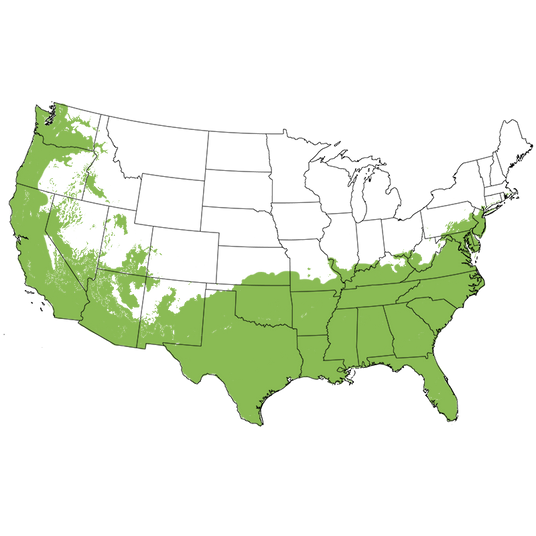
Growing Zones 7-11
An intense yellow that thrives in full sun, the Lemon Ball Sedum (Sedum mexicanum 'Lemon Ball') is a ground cover that does not disappoint. The super sunny yellow color performs so well in the heat! Interestingly, the fleshy leaves are arranged around the stems, and the plants make neat matt of that incredibly brilliant yellow color!
It's that plant that when anyone sees it growing, they always say "What is that plant?". It is that plant that stands out because of its intense yellow color of flowers and foliage! The fine textured pointed leaves have a Fir tree look, and form a soft cushion mounded shape!
The star-like flowers of Stonecrops are also yellow, but hard to see from a distance as the leaf color is much the same. Yellow on yellow just punching up the hot colors in your yard. Pollinators, bees and butterflies will seek out these tiny clusters for their nectary goodness! These are fantastic annual accents throughout cooler growing zones, but Lemon Ball is a hardy perennial throughout USDA planting zones of 7 to 11!
Planting and Application:
Rock your Rock Garden with this incredible ground cover that is a xeriscape plant. Once it is established, it needs little additional water. Rock Gardens offer interesting nooks and crannies to tuck this guy in and typically offer well-drained soils. They also work extremely well in raised beds.
Tuck Lemon Ball into your sunny patio pots and hanging baskets to carry that same color through your yard. Use it as a groundcover in those hot, exposed areas, carpeting areas en masse in easy-care brilliance! They make great edging plants too because they are prized for their low-water usage!
Lemon Ball is a no-brainer to grow and will accent your landscape amazingly well! Imagine this plant with some great companions like small ornamental grasses or Asters in complementary or contrasting colors. They are great in mass plantings around Roses and Perennial borders too! These plants really shine in hell strips along the road, sidewalk, and driveway!
Both as an annual accent or perennial focal point and filler, these succulent plants look fantastic in pots and planters in the sun! Spruce up your poolside plantings and outdoor garden rooms with these lemony cushions! Dress them up or down as they adapt to both formal and informal themes with ease!
- Fine-Textured Lemon-Lime Foliage
- Succulent Leaves & Rounded Mounding Form
- Stary-Shaped Clusters of Yellow Blooms - Pollinator-Friendly!
- Wonderful Hardy Succulent in Containers & Planters
- Xeric Gardens, Fire-Wise Landscapes, Garden Edging & Groundcover
#ProPlantTips for Care:
Grow perennial Sedum in the sun to keep it happy - for at least 6 hours per day! Make sure it is in well-drained soils or it will melt away. Well-drained soils with moderate moisture at first keep this plant in great shape. Division of larger chunks will keep it happy as needed as it spreads - roughly every 3-5 years. Sedum are highly resistant to most pests and diseases. Trim down the stems to create a tidy fresh start each spring, before you see new growth begin to emerge.
- Full Sun For The Most Color
- Moderate to Low Soil Moisture Once Established
- Nearly Any Very Well-Drained Soil Type
- Prune Back Early Spring
- Pest & Disease Resistant & Low-Maintenance
Cushions of lemon-lime, the Lemon Ball Sedum is a must-have for hot, sunny areas around your landscape! Order yours today at Nature Hills Nursery!
Stonecrop Frequently Asked Questions
How To Grow And Care For Sedum?
Also known as Stonecrop, Sedum need full sun for the most flowers and very well-drained soil. Provide moderate, regular moisture and fertility. Prune down in the very early spring.
Will Sedum come back every year?
Sedum are reliable perennials so long as they have well-drained soil year-round.
What happens to Sedum in winter?
Sedum are herbaceous perennials that will lose their leaves after frost and die back to the ground. They leave behind ornamental dried flowers and stems for winter interest. In spring, they regrow from their root systems anew!
Will Stonecrop spread quickly?
Stonecrop or Sedum will not spread or become invasive, staying put where it's planted as low-growing mounding plants.
What Shipping Options Do You Offer?
NatureHills.com works closely with our growers and nursery professionals to ensure we ship when it is most appropriate for your area. Our goal is to deliver the hardiest plants by avoiding extreme high and low temperatures. Check out our shipping schedule for more information and to learn our wills and won'ts when it comes to shipping plants. Find your Stonecrop Sedum for sale here at NatureHills.com!







